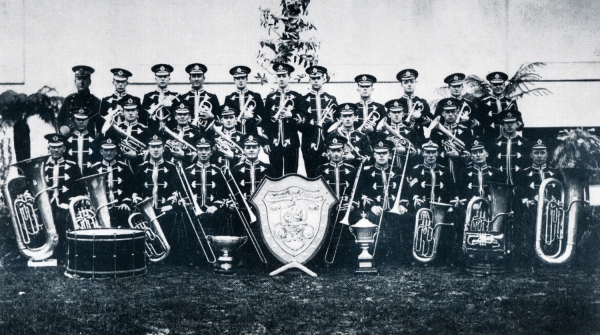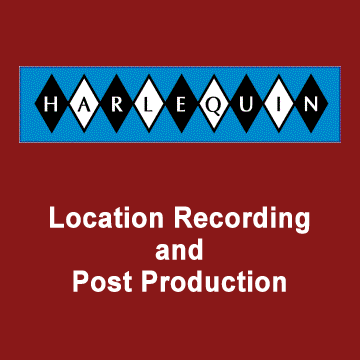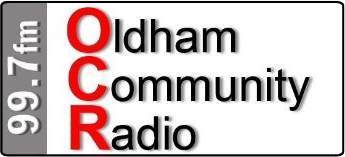Going back to the first contest in 1853 when Mossley Temperance under the baton of William Taylor was announced as the winning band. No one then could have imagine the same contest even after a number of venue changes would be still going strong today.
Mossley although drawn to play first could not be found when the contest was ready to start. However, being the first contest and the members eventually turning up was allowed to play last of the eight bands taking part.
It was 1924, 71 years after Mossley made history being the first winners of the British Open when a band from Australia, the Newcastle Steel Works Band was invited to take part in the British Open.
Compared to all of the other competing bands in that 1924 contest the band from down under was a comparative newcomer.
It was in 1916 when a group of workers from the Broken Hill Proprietary company's steel works in Newcastle, New South Wales showed an interest in forming a new works brass band. With a high degree of enthusiasm and a grant of £50 from the company was enough to lay the foundation stones of what was to become the Newcastle Steel Works Band. A band that would shock the established British banding fraternity to its core, by not only taking part but winning one of the blue ribbon events on the British brass band contesting calendar.
The band took part in its first contest in January 1918 in Kurri Kurri, a small town 20 miles away from Newcastle. This was under the baton of J.J.Kelly who had conducted the South Notts Temperance Band until he emigrated to Australia from the UK in 1917. By the end of that year he was the conductor of the Newcastle Steel Works Band until 1920 when he was replaced by Albert Baile.

Born in 1882 Albert Baile was living in Battersea London, by the time he was nine the family was already living in Western Australia and he was being taught to play the flute, piccolo and clarinet. He later turned his musical attention away from woodwind to become a brass player, particularly as a cornet player. He soon made his mark as a fine player and by 1908 was a principal solo cornet .
In the early part of 1920 he was the conductor of the Perth City band which at that time was the champion band of Western Australia. It was following his success with that band he was appointed the new conductor of the steelworks band. His success with the band was immediate being placed in the prizes at a number of prestigious contests.
In 1923 the band held back from contesting - the conductor had a bigger prize in mind. A trip to England to represent Australia at the British Empire Exhibition of 1924. This needed a lot of finance but with all the fund raising events the money was raised. The band desperately needed a band manager for this special event. In 1907 George Porteus had managed Besses o'th Barn band on its trip to Australia and New Zealand. With his guiding hand and management skills he was the man the band committee wanted.
On Monday 10 March 1924 the band left Newcastle on its journey half way round the world. Over 15,000 spectators had attended the final concert to wish them well.
This was just one of six final concerts to help the final push with the band's fund raising efforts. So great was the size of the crowd the police had to be called to carry out some crowd control and allow as many into the theatre as was safely possible to hear the band's final concert.
When the curtain went up the greeting from the audience was rapturous applause and grew even louder when Albert Baile stepped out onto the stage. The band opened the concert with Schubert's Rosamunde Overture, the programme also included the Grand March from Tannhauser . The atmosphere was electric when the band performed Cyril Jenkins Life Divine.
 There was only one soloist who played at this concert and that was the band's new principal cornet player Arthur Paul Stender who had only joined the band the day before. He opened with Percy Code's Zelda, which at that time had only been published the year before (this can be found on YouTube - under the heading Newcastle Steel Works Band ). He was a cornet champion in Australia between 1918 and 1924 and the 1922 New Zealand champion. To show he was a real champion the audience were thrilled when he played William Rimmer's triple tongue polka Titania as an encore.
There was only one soloist who played at this concert and that was the band's new principal cornet player Arthur Paul Stender who had only joined the band the day before. He opened with Percy Code's Zelda, which at that time had only been published the year before (this can be found on YouTube - under the heading Newcastle Steel Works Band ). He was a cornet champion in Australia between 1918 and 1924 and the 1922 New Zealand champion. To show he was a real champion the audience were thrilled when he played William Rimmer's triple tongue polka Titania as an encore.
Arthur was born on April 26 1899 in Richmond a suberb of Melbourne, his father was of German extraction and was a bandsman. He iniailly taught Arthur to play the tenor horn and was soon brought in as the latest member of Stender's South Melbourne Band. As a soloist having moved on to the soprano cornet he won the Ballarat South Street in 1916 and two years later won it again on the Bb cornet. In 1920 playing Percy Code's solo Miranda he won again.
Now making a name for himself Frank 'Massa' Johnston recruited him into the successful Collingwood band. He went on to win the South Street title again in 1921 and 1923, as well as the coveted first prize at the 1922 New Zealand championships.
He was the principal cornet player in the successful Newcastle Steel Works Band at the 1924 Blele Vue contest and later as principal cornet for two of Albert Baile's Commonweralth bands. He was one of two featured cornet soloists in London in 1924, the other being Harry Mortimer.
He had a serious interest in mouthpiece design and would quite often be seen changing his mouthpiece whilst playing a solo for a particular passage in the piece. He went on to play with the ABC Military Band, Sydney Synphony Orcestra as principal trumpet, he also taught at the New South Wales Conservatorium of Music. When asked about the highlight of his career he always answered with his 1954 performance of Purcell's Trumpet Voluntary for the Queen in Sydney's St Andrew's Cathedral in 1954. Arthur Stender passed away on April 8 1974.
After a month at sea from Freemantle the band arrived in England and performed at the British Empire Exhibition alongside the more familiar names of Black Dyke Mills and Besses O'th Barn bands. The band was soon off on its tightly scheduled series of concerts in many Midland and Northern towns and cities.
One of these towns was Halifax where it had been entered into its first British band contest. The event was held at Thrum Hall the town's rugby league ground - and what a sensational result. The band was given a hearty reception when the members took to the stand to perform the nineteen minute test piece arranged by Joseph Weston Nicholl of the Julius Ruebke sonata The 94th Psalm. As the last pause rang out the band was given an even louder cheer by the estimated 6000 spectators present.
Twelve bands took part and I doubt whether many, if any, of the bands gave the visitors from down under much of a chance. With such names as Foden's, Black Dyke Mills, Hebden Bridge, Irwell Springs, Crosfield's Soap Works, King Cross, Darvel Burgh, Sowerby Bridge and Creswell Colliery just to name a few that were taking part. I doubt whether Albert Baile thought much of his band's chances either as he watched some of the legendary conductors take to the platform with their bands.
 Walter Reynolds the adjudicator complimented all the competing bands for some wonderful performances and awarded 3rd place to Darvel Burgh who had travelled to the event from Ayrshire, 2nd was Foden's and the winners of the Sir William Bulmer Cup and £150 was Newcastle. This now gave the band the honour of being the British Empire Champions.
Walter Reynolds the adjudicator complimented all the competing bands for some wonderful performances and awarded 3rd place to Darvel Burgh who had travelled to the event from Ayrshire, 2nd was Foden's and the winners of the Sir William Bulmer Cup and £150 was Newcastle. This now gave the band the honour of being the British Empire Champions.
We often see the names of adjudicators on old contest programmes and wonder 'what is their back ground to be invited to adjudicate at this or any other contest'. Walter Reynolds was born at Bursledon, near Southampton, on December 9, 1866. He lost both his parents at an early age, and having no brother and but only one step-sister, he way placed at the age of ten in Dr. Barnardo's Homes. While in this institution he was taught the rudiments of music, and played the cornet and then euphonium in the band, with considerable success.
He left the home at the age of fifteen to take a job as a shoemaker at Earl's Barton. In his leisure time he had applied himself to studying music, and at once joined the village band (the Earl's Barton Old Prize Band), and was soon appointed the bandmaster, soon after turning the age of 16 and remained there for three years, when he left to form the Earl's Barton Britannia Band, which soon added the word "Prize" to its title, gaining a place at the band's first contest and that before the band was one year old. While with this band,
After severing his connection with this band about 1890, he removed to Burton Latimer, a village about 3 miles front Kettering. He achieved considerable success as a teacher of bands, in training them for contests and major concerts. He has also conducted several choral societies, including performances of "Messiah," "Creation," "Samson," "Judas Maccabeus" . But, it is as a euphonium player he has won the greatest honours. In 1892 at Stanwick in the single-handed contest, the judge (Mr. Stead) said he had never heard a finer euphonium player, and after awarding him 1st prize, paid him an extra compliment by awarding a special prize from his own pocket. He was also awarded 1st at Dewsbury Euphonium contest in the same yearr, having only competed twice single- handed. Here was someone who was aptly qualified for the task of an adjudicator. He had a host of press notices, testimonials, etc.
The band was not present when Walter Reynolds announced the results owing to its concert commitments in Morecambe and only heard about their result at the Halifax railway station. The band returned to London on August 17 to a great reception held in the band's honour at the Alexandra Palace. The band then had concert commitments at the Wembley Exhibition for the next four weeks.
Saturday 1 September 1924 the band took part in the British Open brass band championships (then referred to as the September Contest) at arguably the Mecca of brass banding Belle Vue in Manchester.
This contest was held in the King's Hall which had originally been opened as a tea room in 1910 and was later extended. In the 1920s further work was carried out at a cost of £30,000 and created the familiar boxing / wrestling ring with arena style seating on all four sides. This was a unique staged style of event and far different from any other band contest venue.
The test piece was 'Selection from Franz Liszt' arranged by Dr. Thomas Keighley, who went on to write Lorenzo (1928), The Crusaders (1932)and A Northern Rhapsody (1935). Compositions that were all used in the British Open and were the three most popular of his seven contest pieces used at Belle Vue.
The band press were all widely publicising that the lads from down under will have a far greater test than they had at Halifax. When you consider brass bands in the present era the amount of time the UK bands have to look, inwardly digest, rehearse a test piece before the big day. In 1924 all the competing bands had received the new piece in July giving them plenty of time to rehearse, to have sectional rehearsals and those all important extra rehearsals. Now try to imagine the members of the Newcastle band who had to rehearse whilst on an extensive UK tour which meant they were on the road almost every day. Albert Baile certainly had his work cut out preparing the band.
Everyone who has taken part in brass band contests since 1924 can be grateful to Newcastle Steel Works band. As the members of the band walked onto the stage they each carried a chair - set them out in concert formation and sat down to wait the arrival of the conductor. From that day on contesting bands always sat down to play the contest piece. Can you imagine if this year's British Open contestants all had to stand up to play Stephen Roberts test piece Reflections on Swan Lake.
On that September day in 1924 it was if the whole of the brass band world had descended on Belle Vue to hear the contest . It was estimated that 30,000 turned up to hear the band from down under. '...We'll show them...' was what most home based spectators were saying. Literally giving them no chance. The crowd was far too great to all get inside the King's Hall but to ensure those left outside could hear the performances additional sound equipment was installed to a nearby ballroom which could take some of the overspill.
The adjudicators were unanimous in their decision: 3rd Harton Colliery (MD: George Hawkins), 2nd Creswell Colliery (MD: J.A.Greenwood) 1st place and the title of British Open Champions to Newcastle Steel Works (MD: Albert Baile). The general view amongst the audience was the adjudicators had got it right.
The talk in banding circles was now asking if the lads from down under could make it a hat trick of wins later that month at the Crystal Palace. In 1924 over 130 bands entered the Crystal Palace contest in six sections, the championship section had 17 of the top bands taking part.
Newcastle drew number 7 and followed South Moor Colliery Band, a crack outfit from the North East who had attracted some fine conductors for the big contest events: William Heap, Angus Holden, J.A.Greenwood who was conducting three bands at this contest, Alfred Gray, Noel Thorpe and J.C.Dyson who was also conducting at this contest. Drawn at number 8 was Black Dyke Mills which was just one of five bands William Halliwell was conducting.
This was the largest brass band event to date with over 50,000 spectators attending, with 72 special trains being made available.
The initial thoughts on the possibility of Newcastle winning was put into sharper focus after the band's success at Belle Vue, giving a distinct possibility they could do it. However, the hot favourite was St Hilda Colliery Band from South Shields who had won the contest three times previously. The final result saw St Hilda's achieve a fourth success with Black Dyke Mills placed second, a good day for William Halliwell who conducted both bands. Newcastle was placed third and well pleased with the result.
The evening Grand Festival Concert saw 12,000 spectators watch six previous winners take to the stage. This massed bands performance also saw the Newcastle band make a centre stage performance of Cyril Jenkins Life Divine. Guest soloist was Arthur Stender the band's principal cornet who played Percy Code's cornet solo Zelda. It has been written that Arthur was a real showman and always played his solos without music . The Handel Orchestra theatre at the Crystal Palace where the concert was being held did not have a sound system so he made half-turns to ensure that each corner of the theatre could hear him. He was greeted with rapturous applause well before he played the final pause - the audience were on their feet with hats and programmes tossed in the air.
This performance brought an end of the tour to the UK - with 50 concerts, a performance at the London Palladium and 18 78rpm records produced with three different recording companies. The last recording in September 1924 was the Crystal Palace test piece Henry Geehl's On the Cornish Coast.
The band sailed off onto the next leg of its tour on October 16 1924 from Tilbury bound for South Africa and finally arrived back in Freemantle in January 1925. Not to a large civic welcome but more of a family affair. The reception was two days later when 5000 turned out to welcome home the band.
The end of the story for this champion band is a sad one when Albert Baile's five year tenure came to an inglorious end. The band almost closed but managed to just about keep going until 1932 when the remaining players merged with the another local group to become the Newcastle City Band.
This change brought an end to a name in Australian banding that in 1924 had competed against the best the UK could offer. Bands which at the time were arguably the best in the world and but for two places at the Crystal Palace the lads from down under would have beaten them all.
...and what happened to Albert Baile and his new Commonwealth Band ?...that is a story for another day....
Acknowledgements: Newcastle Regional Library New South Wales. The work of the late Jack Greaves and his publication A Musical Mission of Empire and the Halifax Courier newspaper (Johnston Press).




















